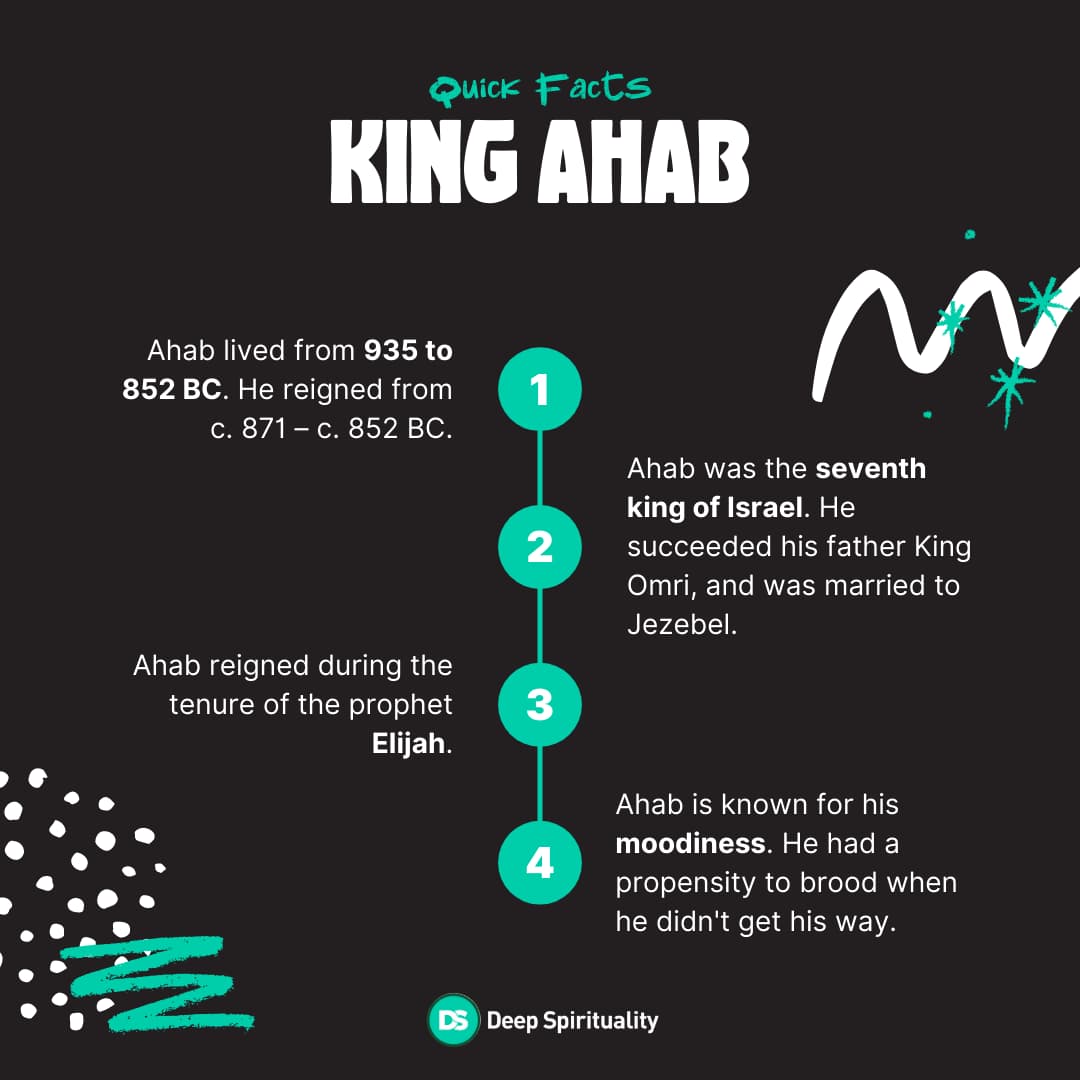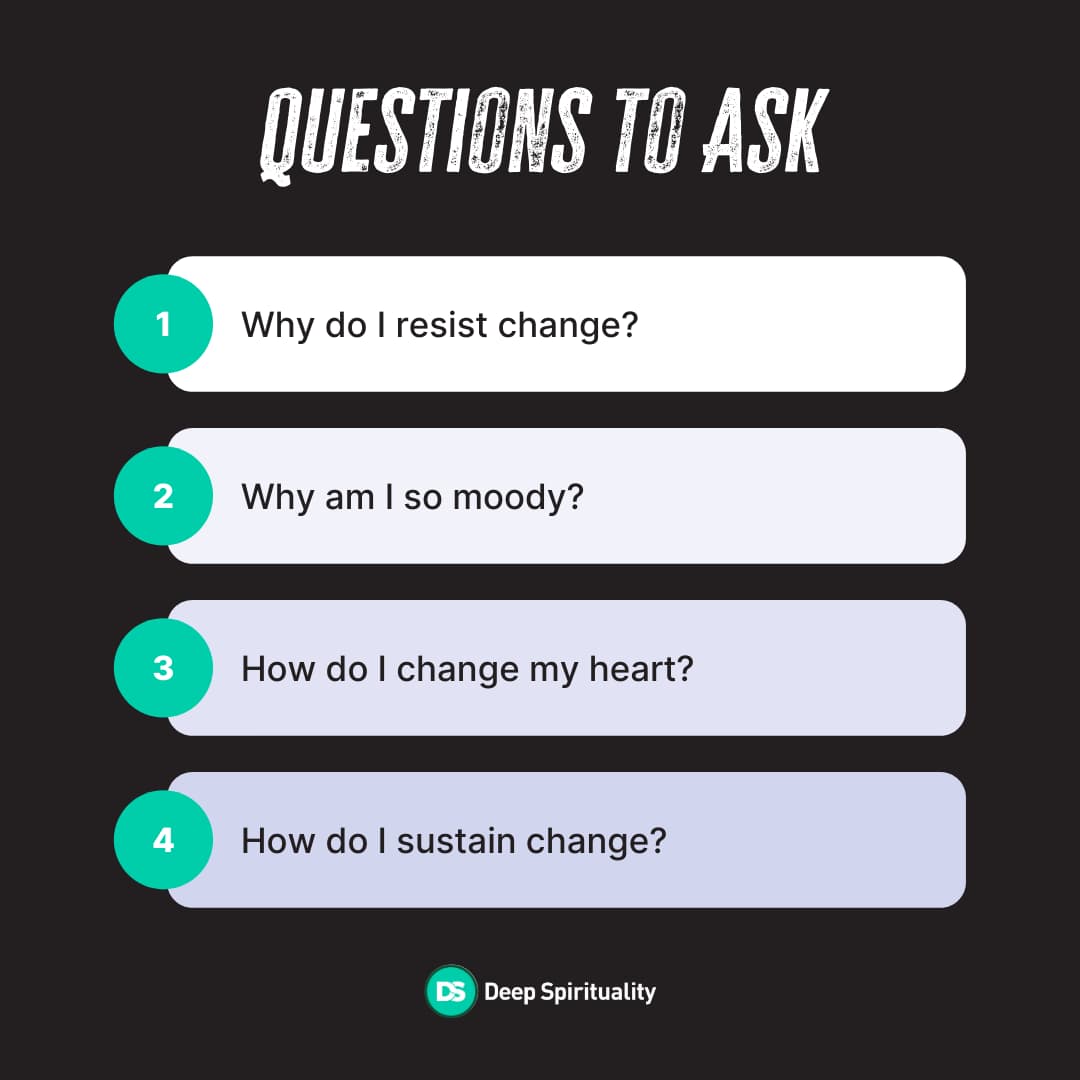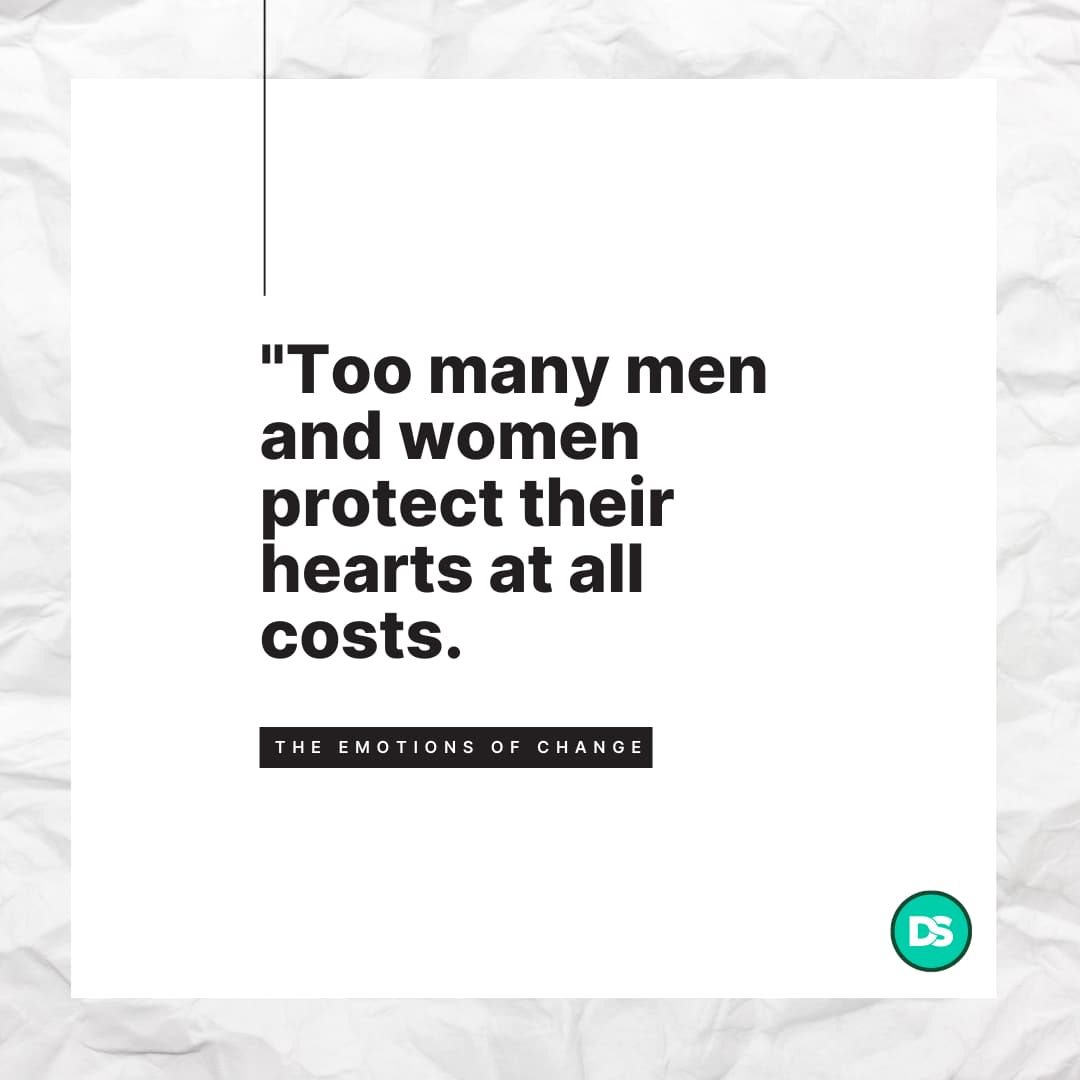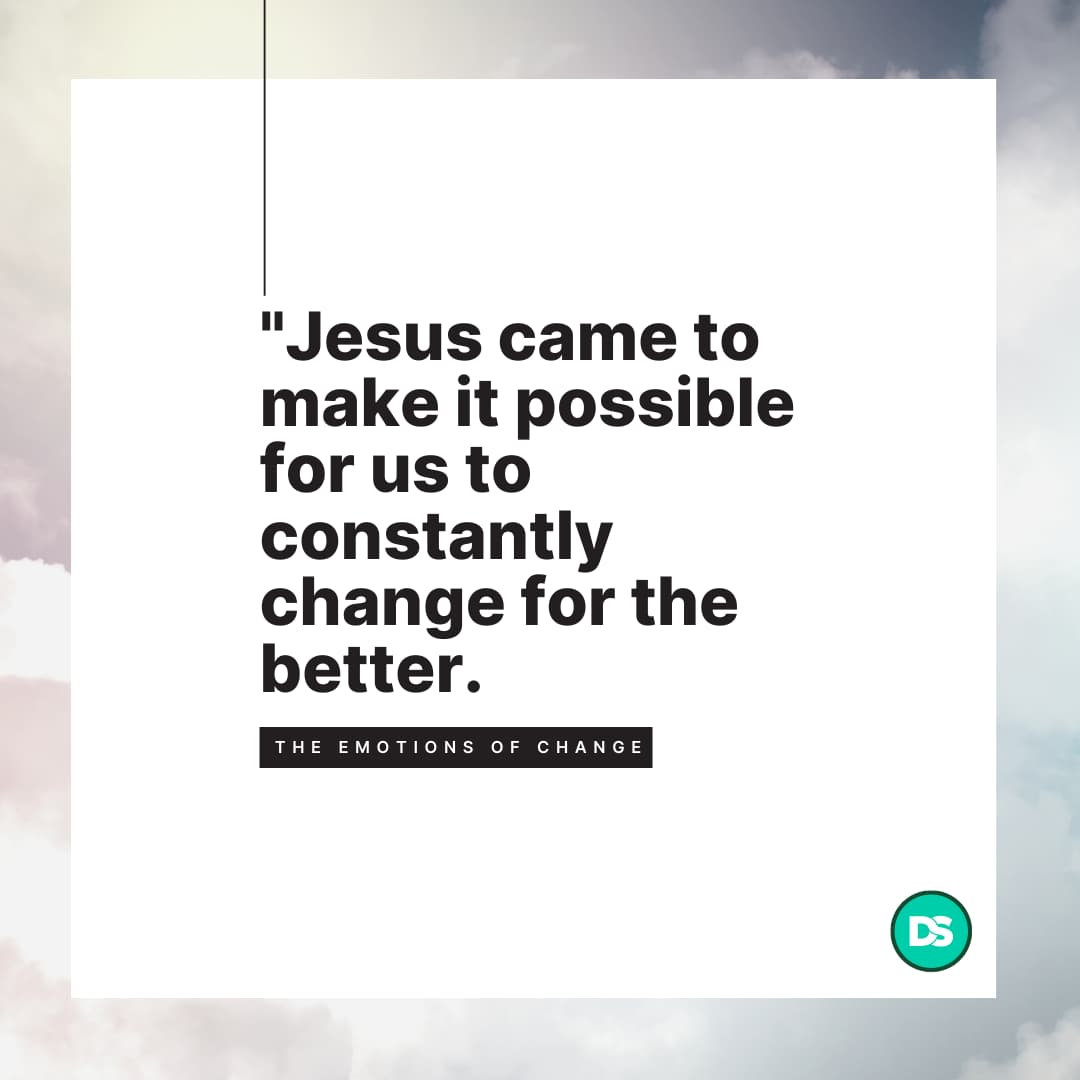Deep Dives is a new series of devotionals that explores characters in the Bible to identify the different heart issues and spiritual transformations they underwent. In studying these characters, we hope to learn from their examples as we work to apply the Bible to our everyday lives.
Changing your heart is hard because it is emotionally disruptive. It’s not bad, just disruptive.
Before we started dating, my wife and I swore we were just friends for the longest time. I had my life planned out, and I was very protective against getting hurt.
I was afraid of the disruption that would be caused if I admitted how much I was really in love with her. When I finally did, it disrupted everything, but in the best possible way. I changed.
God can and wants to change our hearts. We become stuck when we resist that change and protect ourselves emotionally.
And I will give you a new heart, and I will put a new spirit in you. I will take out your stony, stubborn heart and give you a tender, responsive heart. And I will put my Spirit in you so that you will follow my decrees and be careful to obey my regulations.
Ezekiel 36:26-27 NLT
With God, we are never that far from changing our lives because God says he will give us a new heart and a new spirit. The first step is to allow him to take out our old “stony, stubborn heart” so he can replace it with a new “tender, responsive heart.”

However, this can be a difficult process because we often fight letting God take out our old hearts.
As much pain as it has caused us, we are attached to and used to the emotions and protection that the old heart gives. So, if you want to change your heart, get ready for some emotional disruption.
Who is King Ahab in the Bible?
To learn how God changes hearts, we are going to study King Ahab. While he is not a biblical character many like to identify with (we would much rather connect with heroes like David or Esther), Ahab can teach us some key lessons about changing our heart.

King Ahab was one of many rulers in the book of 1 Kings described as evil or wicked. As with many of the kings that preceded him, Ahab “did more evil in the eyes of the LORD than any of those before him” (1 Kings 16:30).
The through-line in the series of these sinful kings is godlessness—each monarch, in their own way, chose to put themselves and various idols above God. The end result of their reign was typically some form of ruin or pain, in their lives and for the lives of the people they ruled.
The Bible goes into compelling detail about the characteristics of King Ahab, and the qualities that led to his downfall.
What we will focus on in this study is how his lack of emotional discipline and resistance to change were instrumental to his demise. We can learn from Ahab how important it is to take our emotions to God and ask him for help handling the difficulties of life.
Let’s start by asking these four questions:
- Why do I resist change?
- Why am I so moody?
- How do I change my heart?
- How do I sustain change?
Reflecting on these questions will help you understand how to learn from King Ahab’s life, and what you can do to let your emotions lead you to change.

Why do I resist change?
In the thirty-eighth year of Asa king of Judah, Ahab son of Omri became king of Israel, and he reigned in Samaria over Israel twenty-two years. [30] Ahab son of Omri did more evil in the eyes of the LORD than any of those before him.
[31] He not only considered it trivial to commit the sins of Jeroboam son of Nebat, but he also married Jezebel daughter of Ethbaal king of the Sidonians, and began to serve Baal and worship him. [32] He set up an altar for Baal in the temple of Baal that he built in Samaria. [33] Ahab also made an Asherah pole and did more to arouse the anger of the LORD, the God of Israel, than did all the kings of Israel before him. 1 Kings 16:29-33 NIV
Ahab was not a good king, and it says he did more evil in God’s eyes than any king before him. He stopped worshiping God and started to serve other gods.
This led many of the people in Israel to do the same thing. God takes it very seriously when someone takes up the mantle of leadership but leads people away from him.

God wanted Ahab to change so he sent people to him over and over again to try to reach him. He sent one, in particular: the prophet Elijah.
When Ahab saw him, he exclaimed, “So, is it really you, you troublemaker of Israel?” [18] “I have made no trouble for Israel,” Elijah replied. “You and your family are the troublemakers, for you have refused to obey the commands of the LORD and have worshiped the images of Baal instead.
1 Kings 18:17-18 NLT
Ahab was so resistant to change that he saw the person God sent to help him as a troublemaker. Ahab resisted, argued, got angry, complained to his wife, and resisted some more.
Eventually, Ahab went even deeper into the dark side. When we repeatedly resist God, we will go deeper into darkness.
There was never anyone like Ahab, who sold himself to do evil in the eyes of the LORD, urged on by Jezebel his wife. [26] He behaved in the vilest manner by going after idols, like the Amorites the LORD drove out before Israel.
1 Kings 21:25-26 NIV
Why was Ahab so resistant? He had ignored and neglected his spiritual and emotional life so much it led him to have a hard heart. Then, He resisted the people God sent into his life and listened to the ones who urged him away from God.
King Ahab was vulnerable to that negative influence because he had ignored and neglected his emotional and spiritual life so much.
Reflection questions
- How do you see the people God is sending to you?
- How do you treat your Elijah?
- How have you ignored or neglected your spiritual and emotional life?
Why am I so moody?
King Ahab lived with many unprocessed emotions, so he became moody and depressed. On one occasion, after a prophet confronted Ahab about disobeying God, he left dejected with a bad attitude.
So the king of Israel went home to Samaria angry and sullen.
1 Kings 20:43 NLT
Then, on another occasion, when one of his citizens, Naboth, would not give him the field he wanted, he responded the same way.
So Ahab went home angry and sullen because of Naboth’s answer. The king went to bed with his face to the wall and refused to eat!
1 Kings 21:4 NLT
His wife responded to his moodiness by taking matters into her own hands and having Naboth killed so she could appease her husband.
Author William July labels a man who has lost his heart as a “tin man.”
We strive to master the physical, external side of ourselves while neglecting the inner man – the part of us that needs intimate and strong human relationships to thrive.
William July, Understanding The Tin Man: Why So Many Men Avoid Intimacy
Too many men and women protect their hearts at all costs encasing them in a hard shell never sharing their vulnerabilities, weaknesses, fears, guilt, or even dreams.
I lived this way, as a tin man, for years and still battle the desire to protect myself from emotional disruption. It has led me to be underdeveloped and delayed emotionally, ill-equipped for the intimacy of marriage, and confused and scared as a parent.
I avoided emotional pain by distracting myself with physical activity and busying myself trying to achieve rather than stopping for honest reflection with God. It is only when I take my time with God seriously by deliberately slowing down that I can prepare my heart for change.

King Ahab and Jezebel illustrate what happens in a marriage when, in the midst of difficulty, husbands refuse to handle their emotions and couples appease and manipulate each other rather than spiritually engaging.
Moody men and women filled with chronic bitterness and disappointment can put their marriage in a horrible situation, all because they refuse to let God help them learn how to have a change of heart.
I am so grateful I married someone who will push in and say what God wants her to say rather than just trying to appease me. My wife has been a soul-saver for me!
This moodiness and loss of heart can change the minute we turn our hearts and emotions to God for him to help us navigate all the difficulties of life.
Join me, everyone! Trust only in God every moment! Tell him all your troubles and pour out your heart-longings to him. Believe me when I tell you—he will help you! Pause in his presence
Psalm 62:8 TPT
Reflection questions
- Are you a Tin Man or Tin Woman?
- Have you neglected your spiritual and emotional life?
- What does your moodiness say about your times with God?
- What can you do in your time with God to slow down and pour out your heart to God?
How do I change my heart?
God sent Elijah to King Ahab one last time. This time Ahab listened.
When Ahab heard these words, he tore his clothes, put on sackcloth and fasted. He lay in sackcloth and went around meekly.
1 Kings 21:27 NIV
King Ahab finally responded, and God noticed. He saw that he was willing to drop his guard, explore his heart, and feel what God was trying to get him to feel.
The word of the Eternal One visited Elijah the Tishbite. [29] Have you witnessed Ahab’s repentance? He has shed his pride and wickedness and humbled his heart before Me. Therefore I will not send evil against his house while he is still alive; instead, I will send it during the lifetime of his son.
1 Kings 21:28-29 Voice
If we want God to remove our stony, stubborn heart, we can learn three key things from King Ahab’s response. The first two responses lead to the 3rd response.
When we shed our pride and humble our heart, God can make us the loving people he wants us to be.
- Shed our pride – This happens when we deal with the emotions we have suppressed.
- Humble our heart – This happens when we change the relationships we have oppressed.
- Repent – When we do the first two things, we can start to share the love that has gone unexpressed.

Reflection questions
- How can you shed your pride?
- How can you humble your heart?
- How can you repent and be more loving?
How do I sustain change?
Let’s keep learning from King Ahab. We learn that letting God change our hearts is not a one-time endeavor but a commitment to a lifetime of changing. Unfortunately, as many of us do, Ahab went back to his old heart habits.
Sometime later, King Ahab met with the king of Judah, Jehoshaphat. They were planning to fight alongside each other, but Jehoshaphat wanted to hear from a prophet of God first.
But Jehoshaphat asked, “Is there no longer a prophet of the LORD here whom we can inquire of?” [8] The king of Israel answered Jehoshaphat, “There is still one prophet through whom we can inquire of the LORD, but I hate him because he never prophesies anything good about me, but always bad. He is Micaiah son of Imlah.” “The king should not say such a thing,” Jehoshaphat replied.
1 Kings 22:7-8 NIV
King Ahab went back to resisting God and his word again. For me, this happens “bit by bit” by allowing small compromises, heart distractions, and progressively shutting God out.
How can we learn from King Ahab’s mistake and sustain the heart changes God makes in us?
- Commitment to great personal Bible study every day
- Commitment to vulnerable, emotionally honest prayers
- Commitment to spiritual friendships where we don’t settle for superficiality but rather work to have depth and truth
God is able to change our hearts on a continual basis. Jesus came to make it possible for us to constantly change for the better. We don’t have to be stuck anymore!
If you have really heard his voice and learned from him the truths concerning himself, [22] then throw off your old evil nature—the old you that was a partner in your evil ways—rotten through and through, full of lust and sham. [23] Now your attitudes and thoughts must all be constantly changing for the better. [24] Yes, you must be a new and different person, holy and good. Clothe yourself with this new nature.
Ephesians 4:21-24 TLB
Though it is emotionally disruptive to change our hearts, it is good because God is always working to change our lives and relationships for the better.

Reflection questions
- Do you have a hard time sustaining change?
- Which commitments are weak in your life and how can you strengthen them?
Explore more:
Scott Colvin works in ministry and community service in the San Francisco Bay Area. Scott ran cross country for the University of North Carolina. Some say he's still running to this day.
Scott Colvin works in ministry and community service in the San Francisco Bay Area. Scott ran cross country for the University of North Carolina. Some say he's still running to this day.





